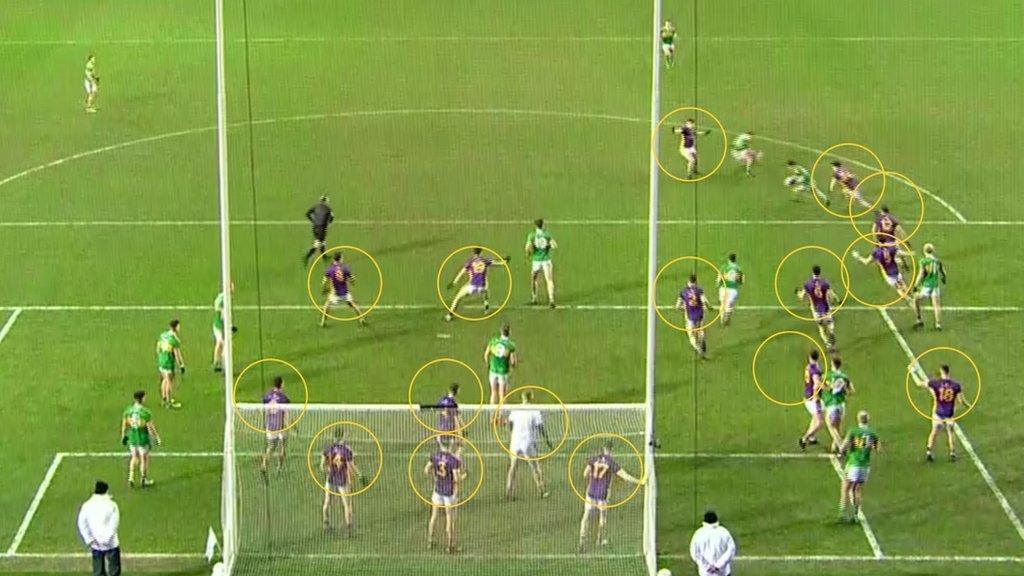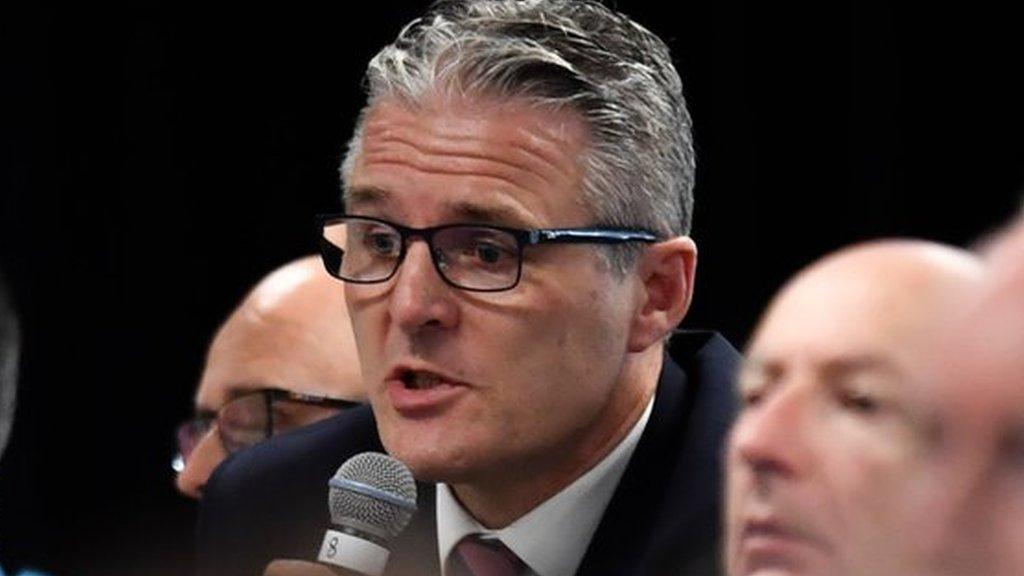Jarlath Burns: GAA presidential candidate says lessons can be learned from Glen-Crokes saga
- Published

Kilmacud (in purple) had 16 players defending their goal in the dying seconds at Croke Park
GAA presidential candidate Jarlath Burns says the organisation "was in a very difficult situation" following the controversial All-Ireland club final between Glen and Kilmacud Crokes.
Crokes won but had 16 players on the pitch during the last play - a replay was ordered after a Glen objection.
Burns believes "lessons can be learned" but defended the GAA's handling of the situation.
"The GAA has followed procedure exactly as per the rulebook," he added.
Crokes beat Glen 1-11 to 1-9 in the 22 January decider but the extra two players on the field led to Derry club Glen lodging an objection with Kilmacud subsequently submitting a counter-objection.
The GAA's Central Competitions Control Committee (CCCC) ordered for the final to be replayed after meeting on Monday night and Tuesday morning.
Kilmacud have three days to appeal the CCCC's decision to the GAA's Central Hearings Committee (CHC).
The GAA has come in for some criticism for not acting more swiftly following the game and for putting the onus of Glen to make an objection before any further action action could be taken.

Burns ran for the GAA presidency in 2020 but lost out to Larry McCarthy
Former Armagh captain Burns, who is in running for the GAA presidency again after missing out in 2020, told The GAA Social that the process has worked effectively despite the "noise that's outside".
"My understanding is that this might not have been in his (referee's) report and that might have created a difficulty - if it had it would have been dealt with very, very quickly," said the school principal, who has served in numerous high-profile GAA administrative roles.
"The GAA was in a very difficult position as the rule as it stands gives the initiative to the team that feels they have been wronged to make the objection. You might say that everyone knew there were 17 players on the pitch and no-one is going to dispute that.
"But you have to remember that the rulebook that's relevant in an All-Ireland final also have to be relevant in an U13 game between Silverbridge and Cullyhanna when there's no umpires and no linesmen. You have to allow an initiative there that if someone wants to object they can.
"In all the Congresses I've been at no-one has ever sought to change that rule and the reason for that is if you introduce a rule that gives the initiative to the CCCC to make a retrospective adjudication on something they saw in the match you get into the business of re-referring the match and you have to be very careful about that.
"Adherence to rules is dull, routine and methodical because it has to be and it cannot take cognisance of the prevailing noise that's outside. Perhaps a simple statement saying the GAA is aware of the situation which occurred at the end of the match but we have to wait for due process to take place - yes, perhaps a holding statement saying that might have been a good idea.
"Lessons can be learned, at the end of the game everyone leans lessons. The two teams learn lessons, the managers learn lessons and the referee will learn lessons - it's all a process."
In a wide-ranging interview on the GAA Social, Burns also discusses the amalgamation of GAA organisations, amateur status, player burnout and attracting more Protestants to Gaelic games.
Click here to listen to the full interview with Jarlath Burns.